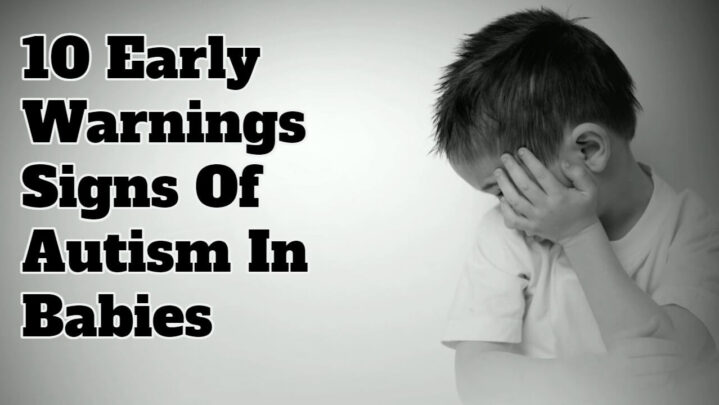Depending on the symptoms and intensity, some parents identify the first signs of autism in their kids as early as six months of age. It can be helpful to be aware of potential warning signs to look for when it comes to development, even though it’s always vital to remember that all newborns develop on different timelines. Diagnosing autism in babies is a complex process that requires professional evaluation by a qualified healthcare provider or developmental paediatrician.
Here Are 10 Early Warnings Signs Of Autism In Babies –
1. Rarely Smiles When Carers Approach Her – Infants normally grin when they are smiled at, but babies with developmental disabilities frequently do not smile back.
2. Rarely Imitates Expression – Babies do not attempt to mimic other people’s noises and motions during fundamental social interactions, such as smiling and laughing.
3. Delayed Or Limited Babbling – Babbling, a developmental stage that precedes speaking, may be delayed or limited in babies with autism.
4. Reduced Response To Name – A baby should typically reply to their name from six to twelve months with increasing constancy. A developmental delay is seen when someone is not receptive to their name.
5. Language Delay – A baby should start using gestures to express themselves around ten months.
6. Lack Of Eye Contact – Most autistic kids avoid eye contact. Thus, avoiding eye contact is a typical red flag that parents must be aware of.
7. Lack Of Joint Attention – Babies with this developmental delay seem less dependent on their parents’ care and attention.
8. Repetitive Movements Or Behaviour – Infants who may go on to receive an autism diagnosis may repeatedly tense up their hands, arms, or legs. They might also exhibit odd bodily movements, including revolving their hands around their wrists, odd postures, or other repetitive behaviours.
9. Does Not Reach To Their Parents While Picking Up – Infants typically respond by reaching back up towards their parents when they are being picked up or held by their parents.
10. Delayed In Development – Rolling over, pushing up, and crawling all take longer than they should.





